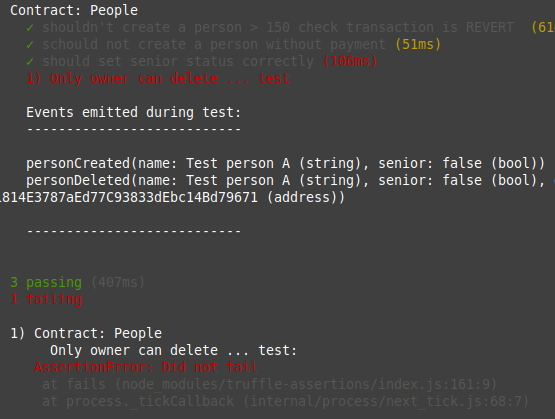Hi guys. I’m having a problem regarding truffle test. I’m getting the error below whenever I’m trying to test the contract.
According to Google, the problem is with the truffle-config.js file. I tried uncommenting the networks portion as suggested by Google (as well as changing the development to ganache) but it doesn’t solve the problem. My config file is as follows:
module.exports = {
networks: {
ganache : {
host: "127.0.0.1", // Localhost (default: none)
port: 8545, // Standard Ethereum port (default: none)
network_id: "*", // Any network (default: none)
},
},
// Set default mocha options here, use special reporters etc.
mocha: {
},
// Configure your compilers
compilers: {
solc: {
version: "0.5.12", // Fetch exact version from solc-bin (default: truffle's version)
}
}
}
I’m having this problem on and off lately. What could be the problem? Thank you.







